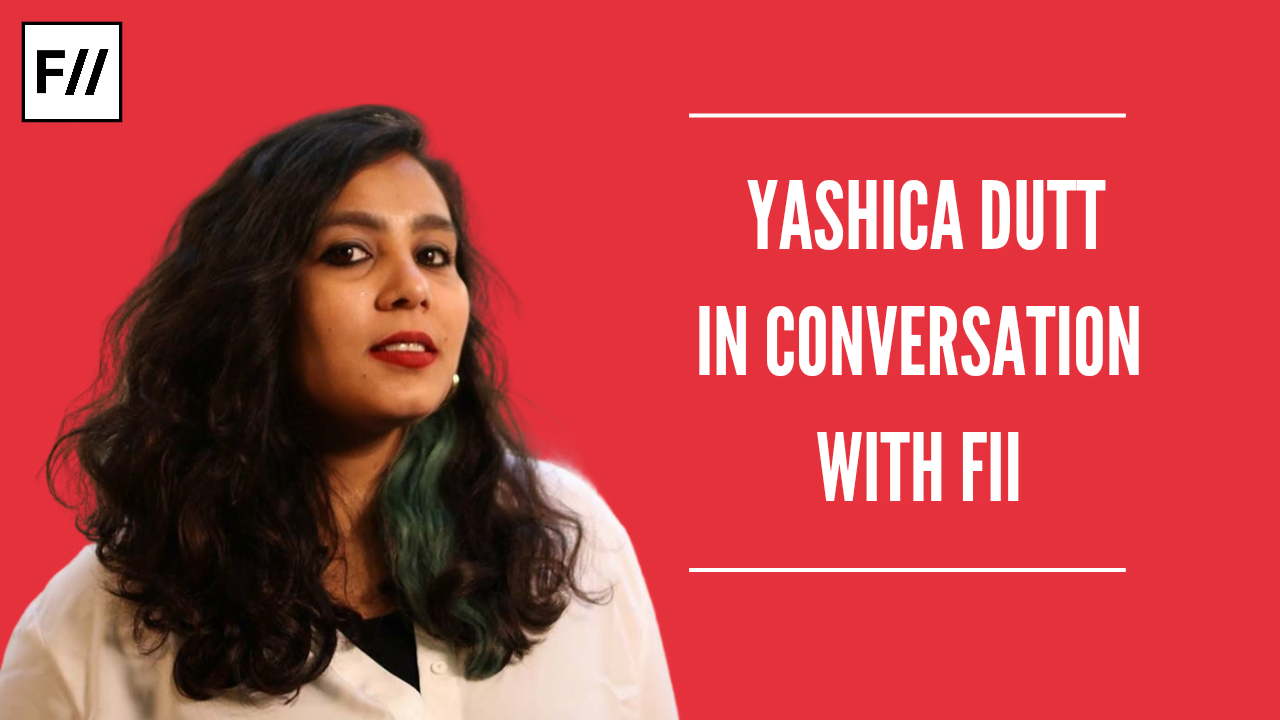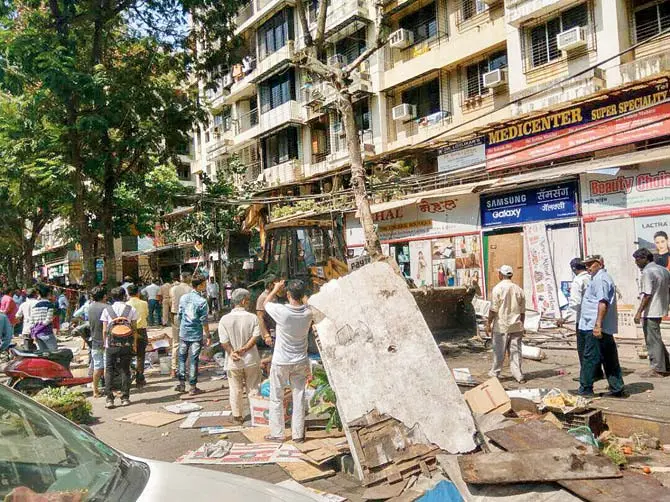On 21st February 2023, the Seattle council approved an ordinance, that turned out to be a historic win, with Seattle becoming the first city in the US to include caste in the anti-discrimination policy. The law will now help the Dalit community in the US fight against caste discrimination, in working spaces, employment, housing and public accommodation.
South Asian communities continue to practice caste in different forms all over the world- from micro-aggression to violent-oppressive attacks on minorities. In this context, FII speaks to the renowned writer-journalist Yashica Dutt, to analyse what the Seattle legislation means to the Dalit Community and Dalit women in particular; and how this strikes an irony in India, a country that still practices caste and caste-based violence. Dutt is the author of the powerful-political memoir ‘Coming Out as Dalit’, an award-winning non-fictional book that talks about her journey as a ‘lower’ caste Dalit woman in India, which received international attention.
FII in conversation with Yashica Dutt on the historic Seattle legislation, caste-based oppression and being a Dalit woman in the United States Of America.
TW: Mention of rape and suicide
FII: Seattle has marked a historic-monumental win against caste oppression. How relevant and important is this at a time when India and other South Asian countries still continue caste-based practices and oppression?
Yashica: I think this is a great question because so far what we focused on is how the Seattle anti-discrimination law is going to affect the folks in the US. But I think it’s really important to understand that this will have direct consequences back in India as well. One of the arguments that people have made is that untouchability is already outlawed in India since 1950.
But everything that we know about caste will tell us that it’s still a real and present part of our social and cultural reality in India. So this new law, which acknowledges caste, as an active form of discrimination, will not only have an effect on the local laws in Seattle, but it will have a profound impact on the tech companies that are headquartered in the city, which is, to name a few, Microsoft and Amazon and when they will be forced to comply with these local laws that acknowledge caste as a form of discrimination, it’s hard to imagine how they can do that without also making a change across the entire company. So which is first, it impacts everybody in the United States, hopefully, tech workers who have headquarters with companies in Seattle, but also back home in India, because, we know that there is such an open and transparent channel of migration, the tech workers that directly come from India, who work for these companies will be impacted by these laws and the Dalit workers, in particular, who have been vulnerable to caste discrimination will have the protections they need at this point.
“I think as a Dalit woman, a Dalit writer and a Dalit journalist, this is an extremely important win because this is not just Seattle. Brandeis University was the first place to recognise caste discrimination in 2019. And that started a tidal wave of many other universities doing the same. We had the California State University system, and then we had Brown University, so it just started like this domino effect. So Seattle being-becoming the first city in the US to acknowledge caste as a category of discrimination, the hope is that this will also start a tidal wave among other progressive areas.”
Yashica Dutt
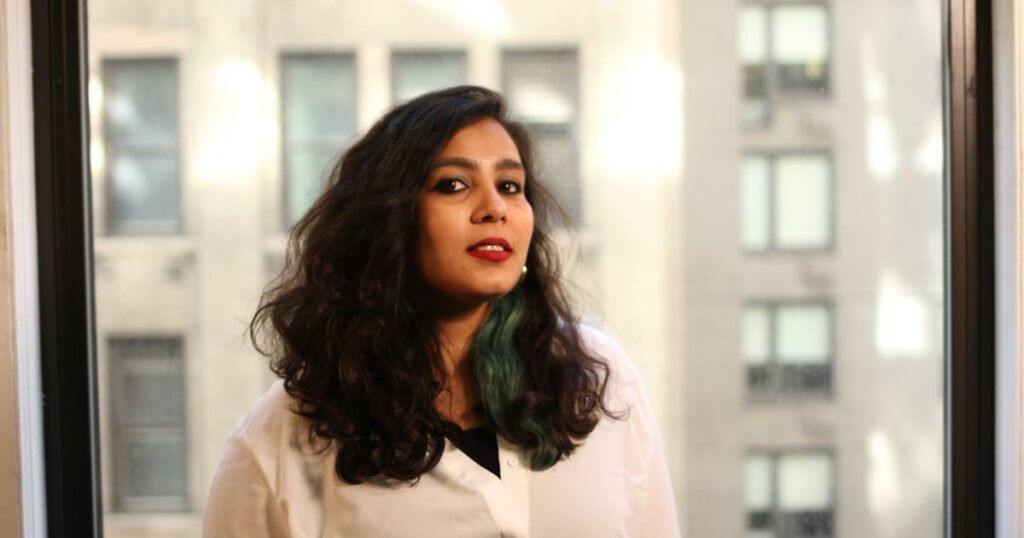
So, this will definitely have an impact in India, Pakistan and Nepal, you know, in Bangladesh as well, where we also have instances of caste discrimination, and also just having an awareness of caste across the rest of the world, especially in the United States is a big deal because then it removes the possibility of denial around caste. With any instance of caste-based discrimination that we see in India in particular, people are very quick to say that but caste doesn’t exist or that’s not the case anymore. With more countries across the world like the United States, hopefully, the UK or elsewhere if they recognise caste in a legal way, then it becomes impossible to deny that caste doesn’t exist in India. So I feel that there’ll be a massive impact.
FII: Marginalised women communities in India have been through extreme political violence-from harassment in colleges to brutal rape-murders like the Hathras incident, which are deliberately ignored by the state. Isn’t this structural violence based on identity, especially the caste and gender equation?
Yashica: I think that’s completely accurate, structural violence, the way it is executed, especially in India, it’s very much laid down on caste lines. And you know, if you will look at the rituals and practices that exist in India, the violence when you are supposed to teach a lesson around caste, it involves often humiliation, it involves sexual humiliation and we’ve seen that across communities, we’ve seen the brutality that Muslim women have had to experience that was because of the identity of their religion.
“Many people are forced to hide their caste, and even when they don’t hide the caste, they face a lot of discrimination. I’ve spoken to so many Dalit tech workers who talk about numerous instances of discrimination at their workplaces. We know the Cisco court case in California which is still being considered in the court at this moment. That’s where a Dalit engineer, had filed a case against his Brahman managers who stopped him from getting the promotion that he deserved, you know, just being able to stay at that workplace. And finally, led him to resign from there, and HR did nothing to protect him or nothing to prevent that.”
Yashica Dutt
But of course, when it comes to Dalit women, lower caste women, and untouchable women, we see a lot of violence that is perpetrated in a way to teach them a lesson. There have been instances we know that caste exists, when if a certain Dalit couple gets married in certain states, in certain practices, the Dalit woman will have to be exploited and agreed to and submit to sexual violence by either the landlord or the Brahmin person in the village. They have established practices like that. And when you talk about the government ignoring structural violence, I think that’s something that we’ve seen time and time again, when even with, rape cases or cases of sexual harassment, you have to convince people that caste is a factor, people just don’t want to consider that caste even matters.
We are constantly asked to prove, why are we bringing caste into this conversation, so but the fact is, just by the virtue of their identity of the caste, especially with lower caste women, they are more vulnerable to exploitation and violence in particular because they’re considered sexually available because, whether it’s landlords or upper caste men, they feel like they don’t have to worry about the law coming after them. There is a sense of impunity against the violence around the Dalit woman because many times society kind of implicitly agrees that Dalit women who step out of the caste bounds can be taught a lesson. So there is absolutely structural violence based on caste and gender.
FII: As you might know, the number of Dalit students who are victims of institutional murder is extremely high including the recent death of Darshan Solanki at IIT Bombay. There have been rising protests against this violence and huge victories like Brown University adding caste to the non-discrimination policy. In this context, how do you place the function of caste in the South Asian diaspora (Hindu, Muslim, Christain, etc.) in academic spaces/tech fields/other working spaces in the US? Would you like to share any instances or personal experiences?
Yashica: I think the function of caste in tech spaces, let’s focus on tech for a moment because based on the immigration patterns from India to the United States in particular, more and more tech workers are able to come to the United States because there is an established channel, but within these spaces, what you see is an intense amount of caste discrimination because despite being a minority there is a huge number of South Asians in Silicon Valley. In fact, you know, Asians, whether they’re Chinese Americans or Chinese immigrants, or Indian Americans or Indian immigrants are among the highest-ranking minorities after white people in Silicon Valley.
So based on just the sheer numbers, it’s highly likely that the people who are in Silicon Valley who are Indians are upper caste, and they, obviously, have everything that functions in Silicon Valley and this is something I learned in my research, and it’s based on networking. You can’t move, you can’t get jobs, you can’t get access to opportunities outside of networking, and you have to rely on the networks and if those networks have ideas around caste, especially if you are part of a network where South Asians think that as a Dalit person, you don’t have any talent or you don’t have the ability or you don’t have the right to be in the US established tech company (laughs), then you will not even get the job in the first place.
“One of the arguments that they’ve made is, this is going to weaponise against South Asians, which is really mind-blowing for me that people are saying that because, does that mean that people who are Dalit, are we not counted as South Asians? Or are we not counted as a part of the community? If we are already, if they are admitting that by people who are Dalits who are calling out for this ordinance or asking for this law, if we are not a part of their community, then the differences are already evident, then there is all the more reason for us to see why this law is needed. They are making the argument for this law themselves.”
Yashica Dutt
Many people are forced to hide their caste, and even when they don’t hide the caste they face a lot of discrimination. I’ve spoken to so many Dalit tech workers who talk about numerous instances of discrimination at their workplaces. We know the Cisco court case in California which is still being considered in the court at this moment. That’s where a Dalit engineer, had filed a case against his Brahman managers who stopped him from getting the promotion that he deserved, you know, just being able to stay at that workplace. And finally, led him to resign from there, and HR did nothing to protect him or nothing to prevent that.
So there have been many instances of caste-based discrimination in Silicon Valley. So having this kind of protection of coming back to the Seattle law will be hugely helpful in protecting those vulnerable Dalit workers.
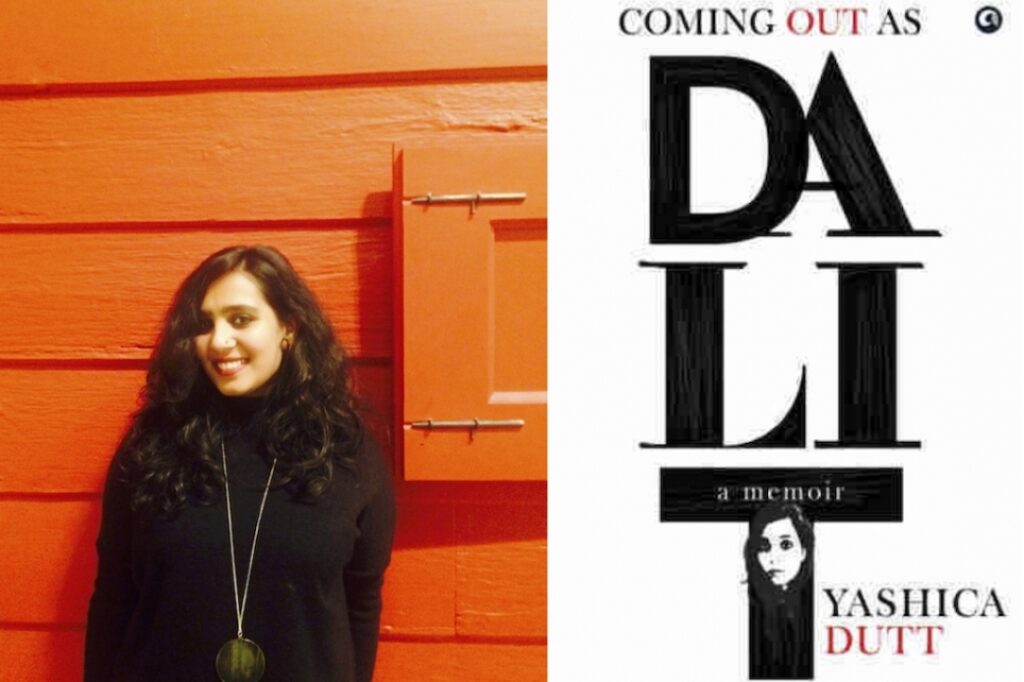
In terms of personal experiences, I would like to say that I’ve made a very active choice to isolate myself from South Asian communities. The only South Asian communities I’m in touch with are the Dalit-Ambedkarite communities. But if I were to be a part of a South Asian neighbourhood, if I were to stay in a South Asian neighbourhood or work in a tech space, then I know that I will face that kind of discrimination because my caste is pretty out in the open. And that’s why in the US, I can remove myself from this discrimination but also that means a great deal of isolation and not being able to depend on the so-called community that is your own, so those are pretty much my experiences.
FII: What does this historic win mean to you as a Dalit woman? How do you see yourself and the next generation in the coming years when there is a rise in right-wing propaganda, especially in Western countries?
Yashica: I think as a Dalit woman, a Dalit writer and a Dalit journalist, this is an extremely important win because this is not just Seattle. Brandeis was the first university which is close to Boston in Massachusetts. Brandeis University was the first place to recognise caste discrimination in 2019. And that started a tidal wave of many other universities doing the same. We had the California State University system, and then we had Brown University, so it just started like this domino effect.
Also Read: FII Interviews: Ghazala Wahab Talks About Caste, Class And Gender In Islam
So Seattle being-becoming the first city in the US to acknowledge caste as a category of discrimination, the hope is that this will also start a tidal wave among other progressive areas, maybe in the Bay Area, maybe, on the east coast, there is only hope that this movement could spread across the country and finally become a part of the national federal civil rights law in the US, now of course, that’s something that we have to work towards, but there is a lot of hope. And there is a lot of, you know, protection for vulnerable Dalit workers who, like people don’t even understand caste, who are non-South Asian.
“When there are people who are fighting for justice, you can’t keep them quiet for too long. For many, many decades, caste has gone unchecked in the United States and in fact, in India, there is a lot of denying around that subject, but now with global awareness, the days for people saying caste doesn’t exist, are numbered.”
Yashica Dutt
So this law is going to help us mainstream in a way that people understand that this discrimination exists. And once people do that, then you can get some protection. So I think that’s really heartening. And when there’s a rise in right-wing propaganda in the coming years, I think it’s hard to see at this point, but you know, if you look around the world, there is the rise of right-wing forces everywhere, whether it is our part of the world, whether it’s the US, the UK, you look anywhere there is right-wing propaganda, but also, I’m hopeful that there is, especially younger folks, people who are under 25, there is a great deal of understanding of progressive ideas, there is a great deal of understanding of equity and justice. So there’s also hope that the younger folks will not have such a hard time understanding these ideas around, like why caste is difficult and a challenging concept and why it exists and how can we eradicate that so I personally feel extremely hopeful.
FII: Many Hindu organisations in the US have shown their disagreement towards the ordinance calling it a ‘weaponising against their community’. Would you like to respond to this reaction?
Yashica: That’s not surprising at all, because I’ve said this before, anytime there’s progress, at least we’ve seen in the United States, if you want to take that as an example, when around in the 1960s, when there was agitation around civil rights for African American people, folks and black people, white supremacists and racists (laughs), well, white people did not want black folks to have equal rights. And these are very similar arguments about how this is, you know, this is good to single out white people, this is going to make them, this is going to take away rights from them.
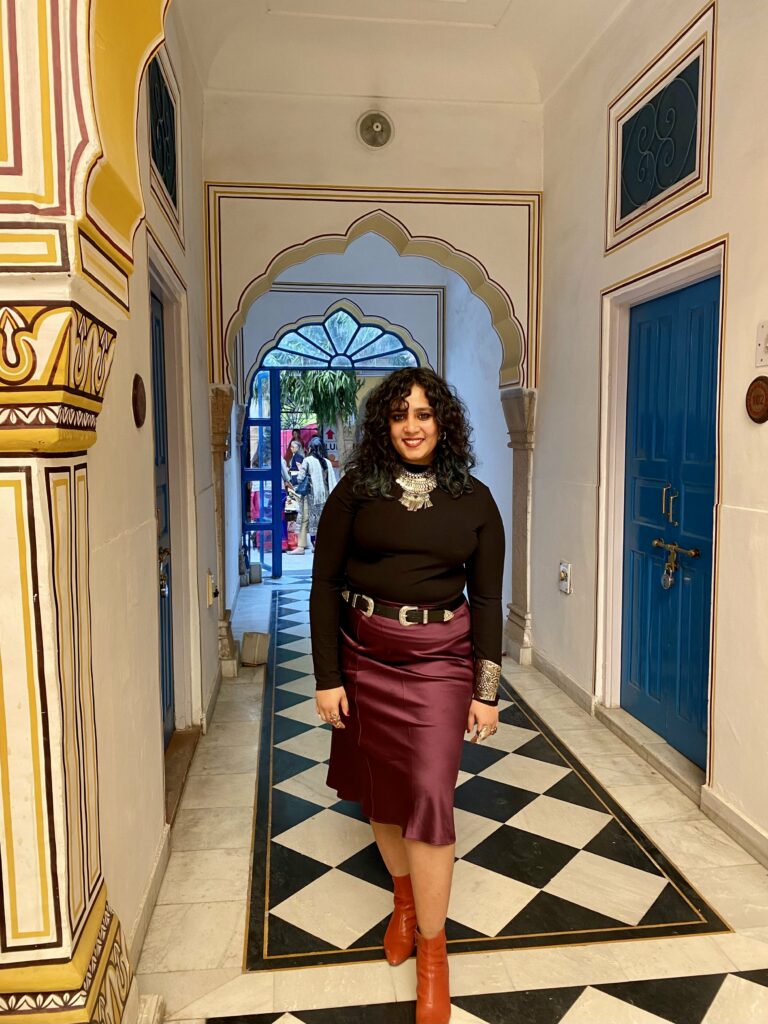
And we’ve seen very similar arguments here. One of the arguments that they’ve made is, this is going to weaponise against South Asians, which is really mind-blowing for me that people are saying that because does that mean that people who are Dalit, are we not counted as South Asians? Or are we not counted as a part of the community? If we are already, if they are admitting that by people who are Dalits who are calling out for this ordinance or asking for this law, if we are not a part of their community, then the differences are already evident, then there is all the more reason for us to see why this law is needed. They are making the argument for this law themselves.
Also Read: FII Interviews: Journalist Meena Kotwal On Minority Politics, Journalism Today And The Caste Divide
So I really have nothing to say except that they can scream and shout as much as they want (laughs), hopefully, they have a lot of money which they can spill into campaigns and try and see where that goes. But when there are people who are fighting for justice, you can’t keep them quiet for too long. For many, many decades, caste has gone unchecked in the United States and in fact, in India, there is a lot of denying around that subject, but now with global awareness, the days for people saying caste doesn’t exist, are numbered.
The interview has been paraphrased and condensed for clarity, at the interviewer’s discretion. FII thanks Yashica Dutt for her time, patience, and powerful insights. We thank Sumit Anand, the public policy consultant who advised for Ambedkar International Center and Coalition of Seattle Indian Americans on drafting the ordinance with Kshama Sawant’s office, for his careful and sincere effort in helping us throughout the interview process.
About the author(s)
Rohini did her Masters in English from Jamia Millia Islamia, New Delhi. Beyond her passion for music, she writes about performing arts in socio-cultural contexts. An ardent fan of Sylvia Plath and Kamala Suraiyya, she believes poetry has the power to heal.
